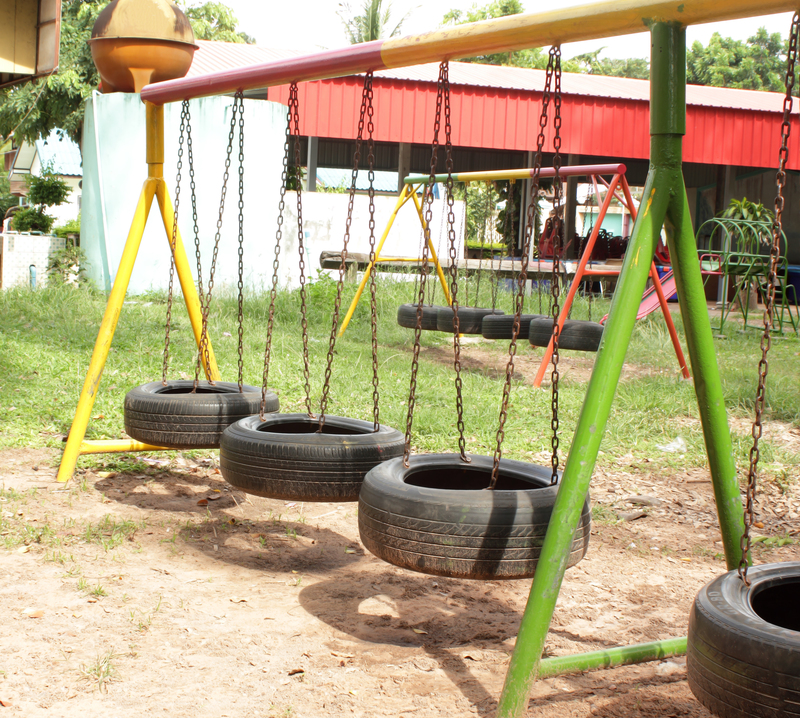
PPE Waste Disposal Mistakes to Avoid for a Cleaner Tomorrow
The surge in the use of Personal Protective Equipment (PPE) in recent years has been crucial in safeguarding public health during events like the COVID-19 pandemic. However, PPE waste disposal has emerged as an equally pressing environmental concern. Irresponsible PPE waste disposal can contribute to pollution, endanger wildlife, and undermine our progress toward a cleaner tomorrow. By understanding and avoiding common mistakes in PPE disposal, individuals, businesses, and organizations can collectively help protect the planet for future generations.

Table of Contents
- Introduction to PPE Waste
- Common PPE Waste Disposal Mistakes
- Environmental & Health Consequences
- Proper PPE Waste Disposal Methods
- Tips for Businesses & Organizations
- Community Involvement
- Building a Cleaner Tomorrow
- Frequently Asked Questions
- Conclusion
Introduction to PPE Waste
Personal Protective Equipment -- including masks, gloves, goggles, gowns, and face shields -- became household staples as the world responded to health emergencies. Despite their lifesaving properties, these items are typically designed for single use, resulting in mountains of waste. Shockingly, it is estimated that over 129 billion face masks and 65 billion gloves were used globally each month at the height of the COVID-19 pandemic. Improper disposal practices mean a significant portion of this waste ends up in landfills, waterways, and public spaces.
Types of PPE Waste
- Single-use surgical and cloth masks
- Latex, nitrile, and vinyl gloves
- Disposable gowns and aprons
- Protective eyewear and face shields
- Disposable shoe covers and caps
*Proper disposal of PPE is crucial both for maintaining hygienic standards and for minimizing environmental impact.*
Common PPE Waste Disposal Mistakes
Mismanagement of PPE waste is not only unsightly; it can cause harm to people, animals, and the ecosystem. The following are the most frequent mistakes you should avoid when disposing of used PPE:
1. Tossing PPE in Regular Recycling Bins
Many individuals mistakenly dispose of masks and gloves in recycling bins, believing them to be recyclable. However, most PPE items are made of mixed materials and cannot be recycled via regular curbside recycling programs. Sorting facilities often treat such contaminated recyclables as waste, and they may even compromise entire batches of recyclable materials.
- Never place used PPE in standard recycling bins.
- Look for specialized recycling programs or hazardous waste disposal options for PPE.
2. Flushing PPE Down the Toilet
Another critical mistake is flushing single-use masks or gloves down the toilet. These items do not break down easily and can cause serious blockages in sewage systems. Worse, PPE debris flushed into the sewer can end up in rivers and oceans, where it wreaks havoc on marine life.
- Always dispose of PPE in the appropriate waste bin instead of flushing.
3. Disposing of PPE on the Street or in Nature
Improperly discarded masks and gloves litter parks, sidewalks, and beaches, creating an environmental hazard and tarnishing the community's appearance. Wildlife can mistake PPE for food or nesting materials, resulting in entanglement, ingestion, or suffocation.
- Carry a small waste bag for used PPE if waste bins are not readily available.
- Report large accumulations of litter to local authorities for cleanup.
4. Mixing Contaminated PPE with General Waste Without Precaution
Used PPE can be contaminated with pathogens. Disposing of such items carelessly with household waste puts sanitation workers and anyone who comes into contact with the trash at risk.
Always follow your municipality's guidelines for discarding infectious waste, which may include using special bags or sealed containers.
5. Failing to Remove or Cut Ear Loops from Masks
This simple step can make a big difference! Ear loops or straps on masks and shields can easily entangle birds and small animals. Before disposing of a mask, snip the straps to reduce this risk.
6. Neglecting PPE Waste Segregation in Workplaces
Organizations and businesses that use PPE extensively must set up clearly labeled PPE disposal bins. Failing to do so could result in hazardous or contaminated waste mixing with general office trash, putting cleaning staff at risk and complicating sanitary waste management.
- Train staff to recognize the proper bins for PPE waste.
- Ensure regular emptying and sterilization of PPE waste bins.
Environmental and Health Consequences of Improper PPE Waste Disposal
Every poor disposal choice has significant consequences. Here's what can unfold if PPE waste is not managed responsibly:
- Microplastics Pollution: Most PPE is made from plastics that break down into microplastics, contaminating soil and water and making their way up the food chain.
- Threats to Marine and Terrestrial Life: Fauna can become entangled in or ingest PPE debris, often leading to injury or death.
- Spread of Disease: Improperly disposed PPE elevates the risk of cross-contamination and the spread of infectious diseases.
- Increased Landfill Burden: Most PPE is not biodegradable, compounding the challenge of diminishing landfill space.
- Harm to Waste Management Workers: Exposure to contaminated PPE places sanitation staff at risk of health complications.
Proper PPE Waste Disposal Methods for a Cleaner Future
How can we dispose of PPE waste responsibly to mitigate these risks? Follow these essential steps:
At Home and in Public
- Place used masks and gloves in a sealed bag before discarding them in the general waste bin.
- Do not touch the outside of used PPE; handle only by the straps or edges and wash hands thoroughly afterward.
- Keep dedicated, clearly labeled bins for PPE waste at home, particularly if someone is ill or has been in contact with the virus.
- Utilize PPE take-back or recycling schemes where they are available.
- Never burn PPE waste at home; this releases hazardous chemicals into the environment.
For Businesses and Medical Facilities
- Provide labeled bins exclusively for PPE disposal in all relevant areas.
- Work with certified medical or hazardous waste disposal firms to collect and process used PPE safely.
- Ensure waste is stored in leak-proof, puncture-proof containers until collection.
- Train staff on proper PPE handling, doffing, and disposal.
Exploring PPE Recycling Options
While many PPE materials are not suitable for traditional recycling, some companies and local authorities have launched PPE recycling initiatives:
- Check whether your community offers a PPE-specific recycling program.
- Look for take-back bins at pharmacies or supermarkets.
- Research companies specializing in hard-to-recycle waste streams that are accepting PPE.
Tips for Businesses and Organizations
If your operations require significant PPE usage, adopting strict protocols is essential. Here's how to avoid PPE waste disposal mistakes in the workplace:
- Install sufficient PPE waste bins at every entry/exit and high-traffic area.
- Ensure all bins are securely lidded and non-touch if possible.
- Post clear signage about what should (and shouldn't) go in each bin.
- Regularly audit your disposal procedures to identify improvement opportunities.
- Appoint a PPE waste champion to oversee compliance and report on issues.
- Source eco-friendly PPE alternatives where possible, such as biodegradable masks and gloves.
Remember: Businesses have a social and legal responsibility to dispose of hazardous waste appropriately. Poor waste management could lead not only to environmental harm but also to significant fines and reputation damage.
Community and Individual Involvement
Creating a cleaner tomorrow requires every individual and community to act. Here's how you can make a difference in tackling PPE pollution:
- Raise awareness: Share information about correct PPE waste practices on social media or community boards.
- Volunteer or organize clean-up drives: Help clean local parks, beaches, and trails of discarded PPE.
- Advocate for better policies: Engage with local government officials to provide more PPE waste bins and support innovative recycling programs.
- Educate your family and peers: Demonstrate how to separate and dispose of PPE safely.
Building a Cleaner Tomorrow: Innovations and Solutions
The mounting crisis of improper PPE disposal demands innovative solutions. Emerging trends for a more eco-conscious approach include:
- Development of biodegradable PPE materials that break down safely in the environment.
- Expanded take-back and recycling programs for used masks and gloves.
- Educational campaigns leveraging influencers and media to highlight correct PPE disposal methods.
- Supporting research and startups dedicated to sustainable PPE alternatives.
By supporting these efforts, you contribute to systemic change, shaping a future where PPE waste no longer mars our natural spaces.
Frequently Asked Questions about PPE Waste Disposal
-
Can used PPE be recycled?
Most single-use PPE made from mixed plastics cannot be recycled via household programs, but specialized schemes may be available in certain regions. -
What is the safest way to dispose of used masks?
Place in a sealed bag, dispose of in a designated bin, and wash your hands immediately afterwards. -
Are biodegradable masks and gloves a good solution?
Yes! When available and practical, biodegradable PPE provides a sustainable alternative that lessens pollution. -
How can I encourage others to follow proper PPE disposal?
Lead by example, share best practices, and support local campaigns and community efforts.
Conclusion
The fight for a cleaner, healthier planet does not end with wearing personal protective equipment; it extends to the way we dispose of it. Avoiding the common PPE waste disposal mistakes outlined in this article is not only a matter of individual responsibility but a collective imperative. Each proper action - from segregating and sealing PPE waste, to supporting innovation, education, and systemic change - helps pave the way towards a cleaner tomorrow.
Let us all play our part: Stay informed, dispose responsibly, support eco-friendly solutions, and encourage others to do the same. The path to a safer, greener future is in our hands--quite literally, when we dispose of our PPE waste the right way!